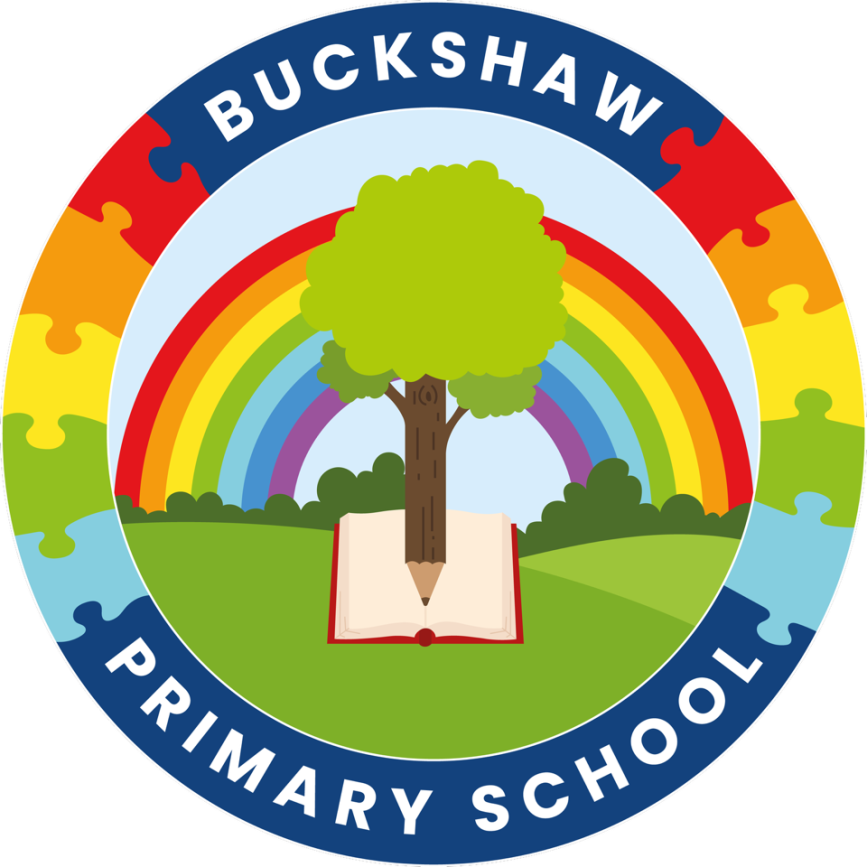History
Intent Statement
At Buckshaw Primary School, we aim for our young learners to develop a positive relationship with History; to view it as an exciting and enjoyable curriculum area and be inspired to think with curiosity.
We always aim to develop the history curriculum in order to nurture an inquisitive relationship with the past, develop their understanding of identity and place and to broaden their critical thinking and decision-making processes. We encourage our children to constantly ask questions, reason and develop judgement about people and events in the past through enquiry, including how evidence is used rigorously to make historical claims, and discern how and why contrasting arguments and interpretations of the past have been constructed. Our purposeful curriculum aims to develop their substantive knowledge of historical content whilst also building on their disciplinary knowledge of how we study and understand the past.
Buckshaw Primary School is fortunate to be located in an area rich with historical stories, architecture, and places of interest such as Astley Hall, the Leeds/Liverpool Canal and the historic market town of Chorley itself. We ensure that history within the setting of our local area is a celebrated and inspiring feature of our curriculum from our Nursery class through to Year 6. We feel that by making full use of these local resources, we help to bring real-world meaning to the children in a context they can easily understand as well as deepening their own identity and the challenges of their time.
Implementation
At Buckshaw Primary School, History is planned and taught using Learning Challenge Curriculum. We enable teachers’ autonomy to use the use both this curriculum and the National Curriculum to tailor teaching and learning to meet the needs and interests of the children in their class. By the end of Year Six, it is expected that the children will have developed their knowledge and understanding of all of the skills set out in the Primary National Curriculum.
Each class has three subject overviews for the year which sets out the learning objectives, disciplinary knowledge, and vocabulary for each of the three units for the academic year. Teachers will use these subjective overviews to guide their planning and teaching, ensuring that objectives can be met, skills taught, and a breadth of historical language is being developed.
Teachers will also be encouraged to explore opportunities for trips and visits to the wider area in order to develop historical understanding first hand. The local area is fully utilised to achieve our desired outcomes, with extensive opportunities for learning outside the classroom embedded in practice. We make frequent use of local visits, develop learning opportunities with external agencies such as Lancashire Museums Service, organise and implement themed days and provide opportunities for expert speakers to engage with our children in the context of our History curriculum.
History topics at Buckshaw Primary School are informed by the National Curriculum carefully planned and structured to ensure that current learning is linked to previous learning. Furthermore, the curriculum at Buckshaw Primary School is designed to offer our children the opportunity to constantly ask perceptive questions, think critically, weigh evidence, sift arguments, and develop perspective and judgement. Through this process they can begin to understand the complexity of people’s lives, the process of change, the diversity of societies and relationships between different groups, as well as their own identity and the challenges of their time.
The Early Years Foundation Stage (EYFS) follows the ‘Development Matters in the EYFS’ guidance which aims for all children to have an ‘Understanding of the World; people and communities, the world and technology’ by the end of the academic year.
Impact
Outcomes in History books as well as cross-curricular work shows clear evidence of Buckshaw Primary School’s broad and balanced History curriculum and demonstrate the children’s acquisition of identified key skills and knowledge. Staff carry out formative assessment on a lesson-by-lesson basis and summative assessment is carried out every term in accordance with our assessment policy. Children review their successes at the end of every session in relation to the objective shared with them beforehand. In line with building on previously attained knowledge and skills, children record what they have learnt comparative to their starting points at the end of every topic. Pupils’ books are subject to a regular scrutiny led by the subject leader as well as members of the SLT. This is to ensure the school is taking a unified approach to the subject and to offer effective feedback in order to ensure impactful teaching and learning.
